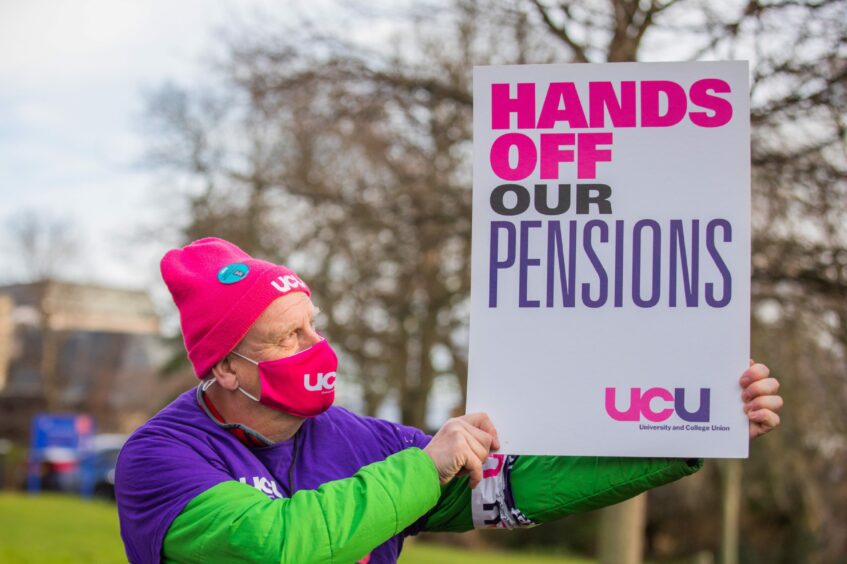For a sector claiming to be short of cash, universities seem able to find plenty more for the top earners.
Take Wendy Alexander from Dundee University.
The former Scottish Labour leader is now on at least £170,000 a year.
That’s £35,000 more than Nicola Sturgeon gets for her job at the top of government.
Not only does Ms Alexander’s salary outstrip that of the first minister; she is also attracting attention from union members protesting what they say are damaging cuts to pensions for low-paid staff.
No wonder the union members are angry. The Unite union brands it “hypocrisy”.
Ms Alexander, the vice-principal of international, is getting a wage increase of at least £10,000 when the lowest-paid are worried about the cost-of-living crisis.
Others at the university are also on more than £100,000. The principal gets more than double that sum.
It is hard to square the seemingly vast disparity between ordinary wages and these huge salaries.
Some striking staff say their retirement funds could be slashed by up to 40%.
No wonder people are anxious when the economy is in turmoil and the government appears untroubled by making controversial decisions with everyone else’s finances.
Public sector strikes and industrial protests keep happening for a reason. In Holyrood, Ms Alexander’s former colleagues bang the drum for increased wages for the lower earners.
They are incensed at the gap between the best and least paid.
They worry about a society in which the rich seem to get richer while the poor get poorer.
Ms Alexander used to dream of becoming first minister. She never got there, but she is certainly making up for it with her Dundee University pay packet.












Conversation